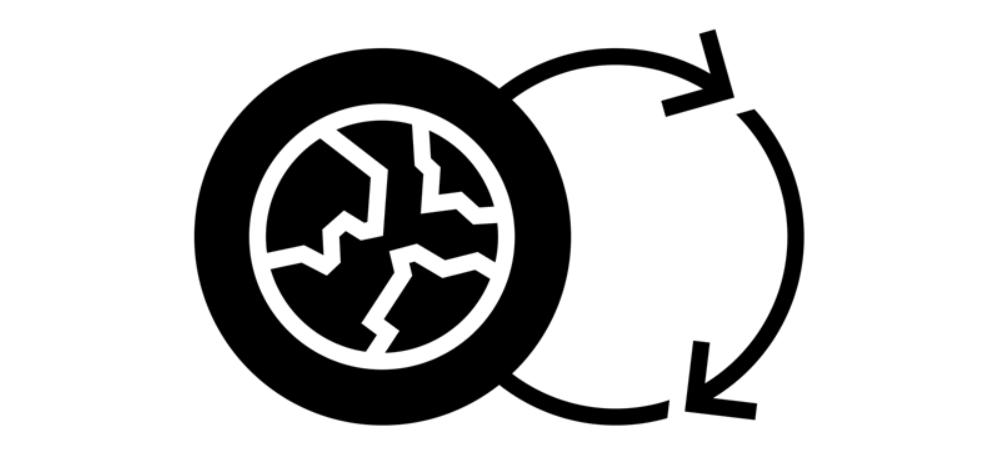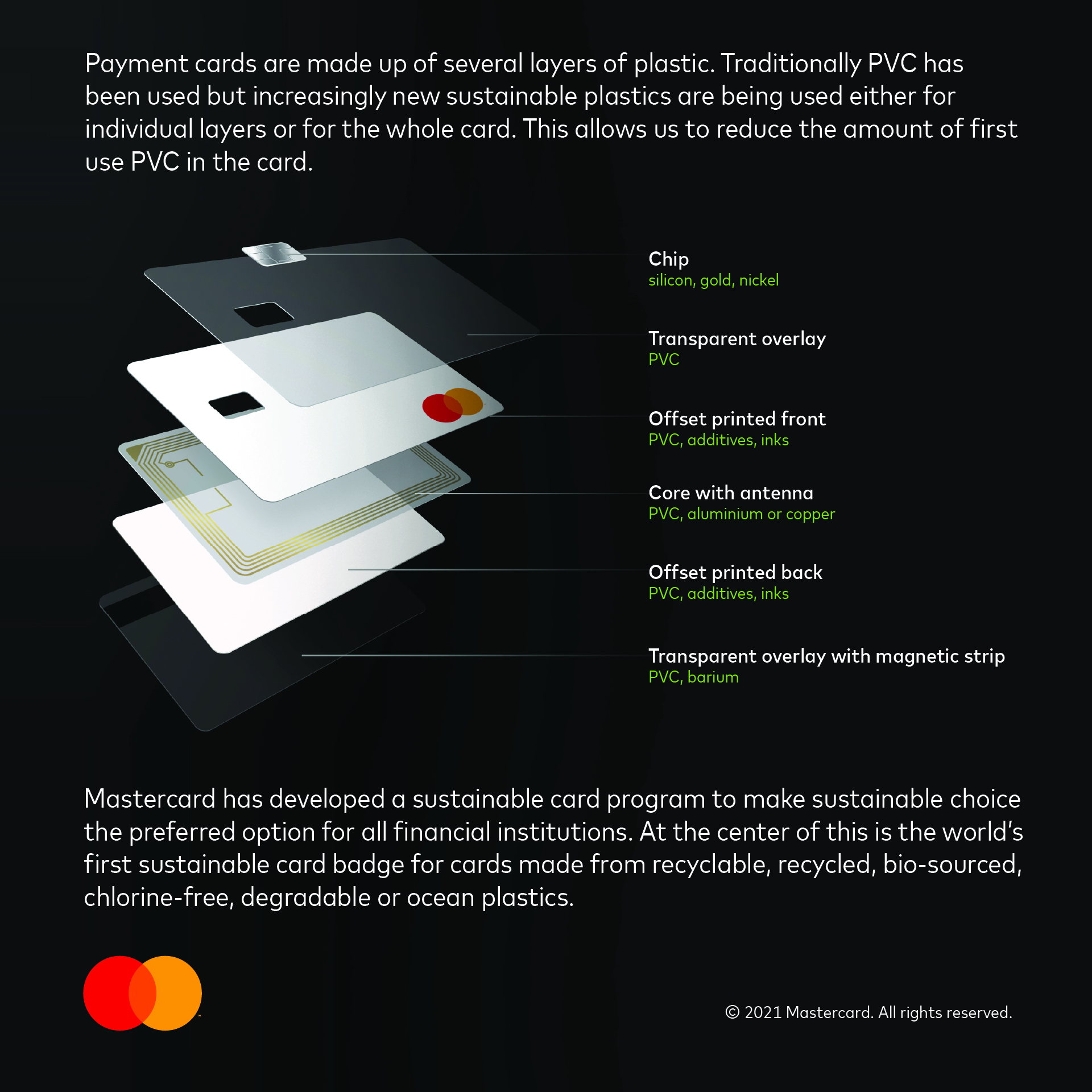
New Certification And Recycling Programs to Inform Consumer Choice
According to a recent Mastercard study, 58% of consumers are more mindful of their impact on the environment, with 85% willing to take personal action this year.
„Today, Mastercard makes this promise easier to realize with a new badge to identify cards made more sustainably from recyclable, recycled, bio-sourced, chlorine-free, degradable or ocean plastics. Easy to spot on the card, the badge is a simple reminder of the commitments made to address sustainability concerns,” according to the press release.
“People want brands to behave in more sustainable and eco-friendly ways. But, making it happen across extended supply chains with multiple partners can be trickier than setting a goal,” says Ajay Bhalla, president of Cyber & Intelligence, Mastercard. “With this sustainable badge, certification and recycling program, we have a real chance to address each of these issues and bring trust to sustainable choice as we collectively move towards a more circular economy.”
The Mastercard Sustainable Materials Directory, established last year, aims to help issuers offer more eco-friendly cards to consumers. More than 100 financial institutions, including Banco Santander and Starling Bank, offer Mastercard sustainable card programs in over 30 countries.

Producing cards made from more sustainable materials is an important step. To extend the impact of these efforts, Mastercard and Giesecke+Devrient (G+D) have developed a new program that helps people easily recycle their cards.
How the certification and recycling program work
Cards carrying the sustainable card badge will be verified by an independent, first-of-its-kind certification program that assesses sustainability claims. Using current industry benchmarks, cards will be certified if they meaningfully reduce energy consumption, material consumption, carbon footprint and waste. Each year, the benchmarks will improve as overall sustainability levels improve, continuing to contribute to better environmental management.
Mastercard and G+D will deliver a toolbox of recycling solutions that can be optimized for specific issuer, market and material needs. This builds on the Greener Payments Partnership (GPP) formed in 2018 to reduce first-use PVC plastic in card manufacturing.
“Our vision for our sustainability offering goes beyond the production of an eco-card,” explains Mikko Kähkönen, responsible for the smart cards portfolio at G+D. “Our purpose is to offer our bank clients the services they need to implement their own sustainability strategy, and also to tackle industry challenges such as the recycling of payment cards. A fast growing number of eco-conscious consumers are demanding from G+D, from banks and from industry leaders such as Mastercard that they collaborate towards such solutions to serve future generations and protect our environment.”
Banking 4.0 – „how was the experience for you”
„So many people are coming here to Bucharest, people that I see and interact on linkedin and now I get the change to meet them in person. It was like being to the Football World Cup but this was the World Cup on linkedin in payments and open banking.”
Many more interesting quotes in the video below: